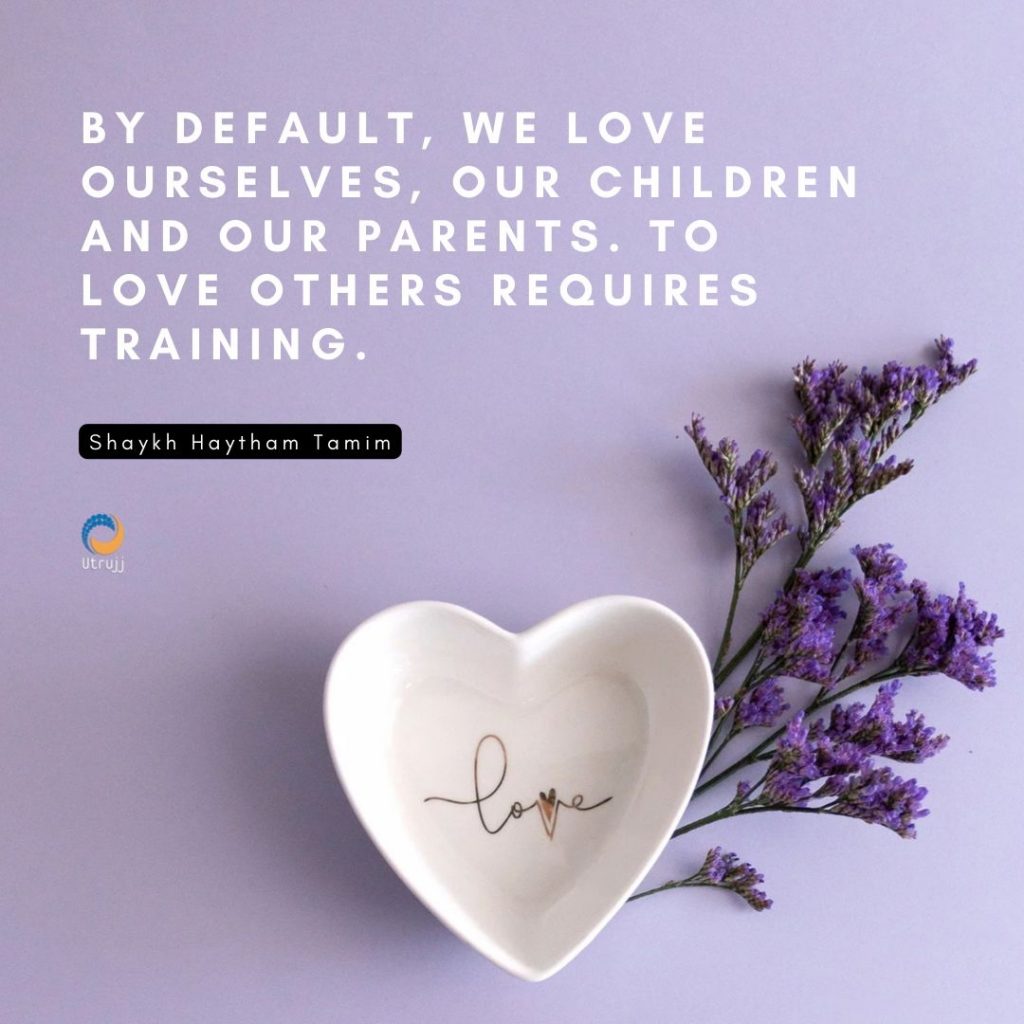You can’t fake love. To reach the highest level of imaan you have to love for others what you love for yourself

Love for people what you love for yourself, you will be a good Muslim. (Tirmidhi)
Why did the Prophet (peace be on him) say this? What is the core of this message?
Love is the antidote to envy
When you wish good for someone it is an antidote to envy. (Though it is fine to have good envy, which is to want to attain goodness like them, but not to wish for their goodness to be taken away, bad envy is resenting want others have and even worse wishing them to lose their ni’mah (blessings).
Islam trains us to build our immunity against twisted thought patterns like envy and jealousy, which are diseases of the heart.
Islam is not a magic wand, but it teaches us to fight against such urges, which any of us can feel, and from which none of us is completely immune.
When someone wishes for another to lose their blessings; or feels anxiety that others are better than them, or have more, and try to keep up with the Joneses, it reflects a lack of self confidence and insecurities.
Creating a system
The revelation came to an ignorant community (jahili), to give them a system, to build them up in all aspects of life from zero. The shariah came to guide them how to improve the positive traits in their character and work on eliminating their negative traits. The Prophet (peace be on him) was creating a framework to guide them when they had nothing apart from their tribal system and social customs.
Perfecting the human being
The Prophet (peace be on him) showed them not just how to do wudu’ and be clean (which has become a hot topic since the coronavirus!), but also how to regulate their emotions, be charitable and remedy stinginess and control their tongues, and eyes and ears. It was ultimately about perfecting human character and conduct.
Love is undervalued and underrated
The concept of love isn’t one that has been emphasised much in our Islamic education, in our mosques, while we were growing up, or in our circles. We talk much instead about technicalities, what is halal and haram; the dos and don’ts, sins and repentance, being thrown in hellfire.
Yet the concept of love is one of the main concepts in imaan. Having love for Allah is a deep concept. If we don’t have this love, what is imaan about?
We need to talk about it more, understand it more and its different dimensions and levels of love – loving your parents, loving your spouse, siblings, children, and friends. Otherwise we lose the softness of imaan.
Without love, imaan becomes robotic
When you read the companions’ biographies, you see they were brim-full of love towards Allah the Almighty, the Prophet (peace be on him) and full of goodness towards each other.
This was not automatic, but due to the fact they had worked on themselves to improve this quality. We too need to practice love and increase love in our life.
Love is not for an exclusive club
Love for others what you love for yourself and you will be a mu’min (Ibn Majah)
The servant will not reach the highest level of imaan until he loves for people what he loves for himself. (Ibn Hibban).
None of you believes until you love for your brother what you love for yourself. (Bukhari)
I prefer the narration of Ibn Majah and ibn Hibban to Bukhari who says love for your ‘brother’ what you love for yourself. From this most of us understand that love is reserved for other Muslims. That we belong to the Muslim Club, and should extend our support to other Muslims. However Islam is not an exclusive club. It is for al-alameen, the world. Therefore you do not attain the highest level of imaan unless you love goodness for everyone (Muslims and non Muslims alike).
We are not supposed to be an inward facing community. But one that looks out for everyone.
The message from the Prophet (peace be on him) is to leave your comfort zone and reach out to those who are outside your circle.
Hence, Abu Hurairah (may Allah be pleased with him) narrated that loving others is one of five things the Messenger of Allah (peace be upon him) said we should act on:
‘Who will take these words from me, so that he may act upon them, or teach one who will act upon them?’
So Abu Hurairah said: ‘I shall O Messenger of Allah!’
So he (peace be upon him) took my hand and enumerated five (things), he said:
1. Avoid the prohibitions and you shall be the most worshipping among the people,
2. Be satisfied with what Allah has allotted for you and you shall be the richest of the people,
3. Be kind to your neighbour and you shall be a believer,
4. Love for people what you love for yourself and you shall be a Muslim.
5. And do not laugh too much, for indeed increased laughter kills the heart. (Tirmidhi and Ahmad)
To care about others requires effort
By default we love goodness for ourselves. But to love others requires training.
Our deen is a deen of goodness. Sharing goodness, promoting goodness, disseminating goodness and inviting others to goodness.
Giving away what you don’t like, what is expired or what you don’t enjoy is not goodness. When you give, give what you like to eat, wear, or use. This is loving for others what you love for yourself.
So you do not offer someone to eat something which you dislike, you don’t give in charity something you don’t like or that has expired, or out of fashion. Choose the good things. If you want to eat it or wear it or use it then it is loving for others what you love for yourself.
O you who believe! Give of the good things you have earned, and from what We have produced for you from the earth. And do not pick the inferior things to give away, when you yourselves would not accept it except with eyes closed. And know that God is Sufficient and Praiseworthy. (2:267)
The true Muslim is the one from whom people are safe from his tongue and his hands
Part of loving others, is that they are not harmed by you in any way. The Prophet (peace be on him) taught us that the definition of a true Muslim is the one from whom people are safe.
‘Abdullah bin ‘Amr bin Al-‘as (may Allah be pleased with them) reported that the Prophet (peace be on him) defined the Muslim:
A Muslim is the one from whose tongue and hands the Muslims are safe; and a Muhajir (Emigrant) is the one who refrains from what Allah has forbidden. (Bukhari and Muslim)
Therefore, the true Muslim doesn’t harm anyone. I wonder how ISIS claim they are Muslim? They are inflicting harm on Muslims more than non Muslims. 80% of their attacks are against Muslims. Muslims are not supposed to inflict harm on anyone at all, Muslim or not. Even in his Farewell Sermon, the Prophet (peace be on him) mentioned this. After the conquest of Makkah, the necessity to migrate ended but the reward of migrating can be earned by avoiding the prohibitions.
Loving goodness for others means keeping them safe. The word Islam itself means peace. We are a peaceful faith. Our deen is not based on violence. Our greeting ‘Salam’ means peace. In order to have people’s trust, they have to feel safe. If they feel anxious of you, then they will not trust you. Be genuine. Do not pretend you are safe, and then betray their trust. Betraying someone’s trust is haram prohibited.
Establishing a system to be a good Muslim
Not all the companions were Muslims from the inception of Islam. Not all of them were like Abu Bakr who was one of the first to accept Islam after the revelation. Abu Hurairah for instance, only came to Islam in 7th year of Hijra, 3 years before the Prophet (peace be on him) died. When the Prophet (peace be on him) arrived in Madiah, after he had established a masjid, (the mosque), the very next thing he established was the concept of brotherhood (muakhat).
The Prophet (peace be on him) was thereby establishing the system of how to be a good Muslim.
The more you love Allah the more you love others
The best among people are those who benefit people the most. (Tabarani)
Brotherhood
We see the practical demonstration of love, selflessness and benefiting others in the Prophet (peace be on him)’s creation of brotherhood in Madinah. When the migrants arrived in Madinah from Makkah with nothing, he paired up about 60 or so of them with hosts in Madinah. The wisdom was beyond supporting the destitute refugees, it was simultaneously about educating the existing community and passing on the message to the Ansar quickly. The Muhajiroon (migrants) had lived with the Prophet (peace be on him) for 13 years in Makkah, and he could not possibly go to every single house in Madinah and teach them, and nor could they attend for hours and hours every day to get up to speed. So the teachings came through the companions.
From this brotherhood model, we see the level of love the Muhajiroon received from the Ansar – well beyond their expectations. They were extremely generous towards the Muhajiroon, they shared their homes, their money, their food and even to the extent, that one of them said to Abdur-Rahman ibn Auf ‘I have two wives, if you don’t find anyone to marry, choose one and I will divorce her then you can have her. This is a real story. Though Abdur Rahman went to the market penniless, within no time he became one of the five wealthiest, if not the wealthiest men in Madinah. Sa’d’s father narrated:
When the emigrants reached Medina. Allah’s Apostle established the bond of fraternity between ‘Abdur-Rahman and Sad bin Ar-Rabi. Sad said to ‘Abdur-Rahman, “I am the richest of all the Ansar, so I want to divide my property (between us), and I have two wives, so see which of the two you like and tell me, so that I may divorce her, and when she finishes her prescribed period (i.e. ‘Idda) of divorce, then marry her.” Abdur-Rahman said, “May Allah bless your family and property for you; where is your market?” So they showed him the Qainuqa’ market. (He went there and) returned with a profit in the form of dried yogurt and butter. He continued going (to the market) till one day he came, bearing the traces of yellow scent. The Prophet asked, “What is this (scent)?” He replied, “I got married.” The Prophet asked, “How much Mahr did you give her?” He replied, “I gave her a date-stone of gold or a gold piece equal to the weight of a date-stone.” (The narrator, Ibrahim, is in doubt as to which is correct.) (Bukhari)
Express love
The Prophet (peace be on him) was keen on turning positive emotions into positive actions. You can see the fruit of real love in actions. As we see from the hadith:
It was narrated from Anas ibn Maalik (may Allah be pleased with him) that a man was with the Prophet (peace and blessings of Allah be upon him) when another man passed by and he said: O Messenger of Allah, I love this man. The Prophet (peace and blessings of Allah be upon him) said to him: “Have you told him?” He said: No. He said: “Tell him.” So he caught up with him and said: I love you for the sake of Allah. He said: May the one for Whose sake you love me also love you. (Abu Dawood)
Many times I asked the musallis in the mosque to do this. It transforms the atmosphere in the mosque. The Prophet (peace be on him) established the boundaries and taught us to do this for Allah’s sake.
Understand why Allah put you where you are
One of the ways you can measure where you are on the scale of imaan, is when you understand why Allah put you where you are. Whether it is your job, or another position, He designated you to be in that position. Quite often people hate their jobs or their situation. Reflect on why Allah put you in this. It is not haphazard. There is no coincidence. Don’t complain, do it properly, consider those clients or patients or customers as Allah’s servants and be good to them. You will be rewarded for every single minute you spend serving them, as long as it is halal. If Allah wanted you to be somewhere else, you would be there. But right now, He wants you to be here. If you can’t understand why, take a step back and reflect on it.
As He told us, He created everything with qadar:
Verily We have created everything according to our predestination. (54:49)
What is the message you are expected to learn? If you can’t figure it out, you will curse your job every morning. Don’t do that. Think how you can make the best of your current position. There is something good in it, though we cant always see it. Dig deep down to find it. It is deeper than the surface. Often we love what is not good for us, such as junk food, while hating what is good for us:
But it may be that you dislike something while it is good for you, and it may be that you like something while it is bad for you. God knows, and you do not know. (2:216)
Be genuine. You can’t fake love
Love from your heart. If you fake your love for others, they will always sense it. What is genuine is also felt in the heart.
Loving for people means not keeping the secrets of success to yourself. If you find an effective way of revising, don’t worry that you will be beaten, share the tips with others. Don’t give them your granny’s secret recipe or your business, but train your mind and heart to love goodness for others, whether it is small scale (like wanting the car behind you get through the traffic light before the red light as much as you want it), medium scale or big scale. It is ongoing. Keep checking yourself. Keep training yourself.
There are different levels. Some are easy but others require more effort. When you get a promotion, do you wish no one else gets it? Or can you find it in yourself to want it for others who work hard too? The moment you want something for yourself which you can’t share, you will have trouble. Firstly in your relationship with Allah and then with your relationship with others. A miser can’t wish goodness for others, even verbally, he is grudging and fake.
Keep training yourself
The moment you stop training yourself, your ego and nafs slip in. It is not easy to bar shaytan from playing you. When you want everything for yourself, it leads to greed and the inability to share.
If you want to achieve the highest level of imaan, keep striving to love others.
Delivered at the Youth Circle 5th March 2020. The Youth Circle is now online
Related posts:
How to deal with difficult neighbours
Grazing around the boundaries of the haram
What is wrong with laughing too much?


Recommended Posts

How Allah strengthens the hearts of believers
April 19, 2024

Don’t be a Ramadani person – Be a Rabbani person.
April 10, 2024


